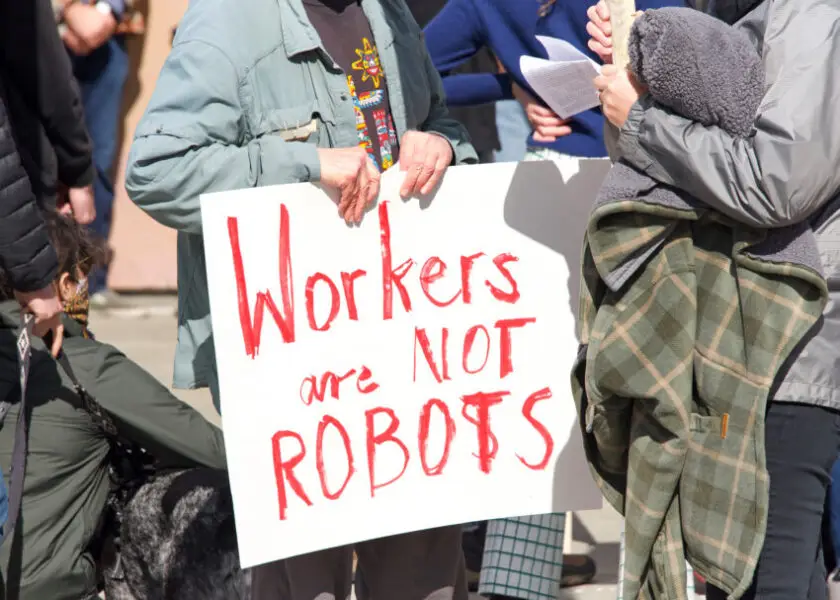After Amazon secured £1 billion in government contracts despite allegations of “union-busting” practices, the GMB union has called on the government to prioritise companies that recognise trade unions when awarding public contracts.
Speaking at the Labour Party conference, GMB announced its push for preferential treatment in public procurement processes for companies that acknowledge and engage with trade unions. This initiative comes in the wake of a narrowly missed vote at Amazon’s Coventry distribution centre in July, where workers almost succeeded in compelling Amazon to negotiate union terms. GMB is now pursuing legal action against Amazon, accusing the company of pressuring employees to revoke their union membership, thus making it difficult to achieve the threshold required for union recognition. Amazon denies these claims.
Data from Tussell, as analysed by GMB, reveals that most of the £1.04 billion in contracts awarded to Amazon last year were for cloud services. GMB’s General Secretary, Gary Smith, emphasised the need for Amazon to treat its workers with respect if it is to continue benefiting from lucrative government contracts. This includes offering fair pay and better working conditions.
The Labour government has pledged to simplify the procedures for union recognition and enhance workers’ rights, aiming to create a more balanced power dynamic between employers and unions. Under current rules, if unions fail to meet the required vote threshold, they are barred from reapplying for statutory recognition for three years.
Amazon has responded to the allegations by asserting that its employees have always had the choice to join or not join a union, maintaining that direct engagement with workers is a key aspect of the company’s culture.
The call by GMB highlights the ongoing conflict between labour rights advocates and large corporations like Amazon. As the debate continues, the outcome could significantly influence future public procurement policies and the balance of power between employers and unions.

